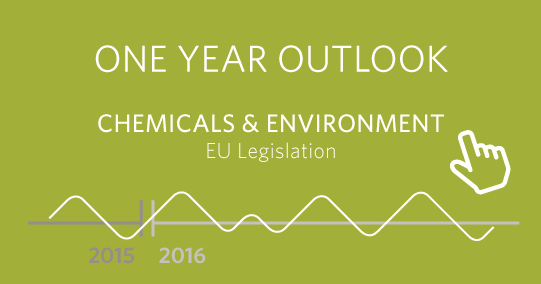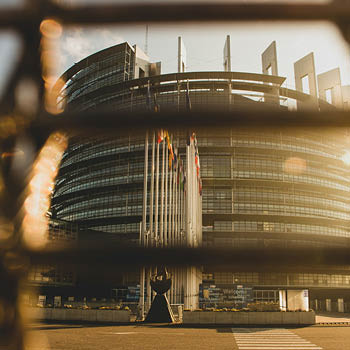A circle has no end: The Commission’s second go at the Circular Economy package
Here it comes! The European Commission today will publish its long awaited Circular Economy package.
If you have been following this saga, you will know that a Circular Economy package first appeared in July 2014, when Commissioner Potočnik led on environmental policy. Soon after however, winds changed in Brussels. The package became a victim of the Better Regulation agenda and was withdrawn with Commission Vice-President Timmermans’ promise to “replace [it] by [a] new, more ambitious proposal by the end of 2015.”
Is the Commission delivering on its First Vice President’s promise? How do we rate the level of ambition?
This is about waste
The revision of the waste legislative framework is the backbone of the Commission’s package. Recycling targets, calculation methods, Extended Producers Responsibility – and more – should keep MEPs and Environmental attachés busy next year. In fact, codecision has not even started yet and we already hear a few disappointing (potentially angry) voices: How could the Commission lower the municipal waste recycling target? Why switching back to an input-based calculation method? And where is the food waste reduction target?
This is about reconciling environmental and economic ambitions
Beyond waste, the Circular Economy package is an attempt to transform production and consumption patterns in Europe; an attempt to reconcile our economic model with environmental imperatives. The Commission’s action plan is crystal clear. Before 2019, a number of key initiatives should be undertaken in order to “reinvent our economy and create new competitive advantages for Europe on a sustainable basis.” All stages of the product lifecycle from production to consumption and from waste to the secondary raw material market will be considered, to truly ‘close the loop’. Product design is particularly interesting in this regard as the Commission announces that the future Ecodesign framework should systematically take into account criteria such as reparability, durability, recyclability or the identification of certain materials or substances.
This is about the Juncker Commission
Today’s publication is last – but not least – a test for the Commission’s ability to deliver on objectives and new working methods. Since taking office a year ago, European Commission President Jean-Claude Juncker has tried hard to stick to its ‘growth and jobs’ direction and transform Commission’s internal working methods accordingly.
The Circular Economy is no exception. In fact, the package is likely to be one of the best examples of what the Better Regulation agenda has delivered so far. Indeed, while the first circular economy package had been very much dominated by DG Environment, the new one results from a joined effort between Commissioners Timmermans’ (regulation and inter-institutional affairs), Katainen’s (economy), Vella’s (environment) and Bienkowska’s (industry) services.
Has the Commission finally managed to overcome its ‘silo’ mindset? Is the package delivering on competitiveness and the environment? Will Members States, the European Parliament and all interested parties be seduced by this approach? The next months will tell us more. Stay tuned.
NOTE: You would like to know more about Circular Economy? Want to discuss the content of the package and understand what it means for your company or your sector? Don’t hesitate to send us a message.
4 Comments
Find Out More
-
The EU year of change: Act 2
June 13, 2024




December 02, 2015 | 2:15 PM
RT @doudou_electra: A circle has no end: The Commission’s second go at the #CircularEconomy package: https://t.co/HELh221eID
December 02, 2015 | 12:30 PM
A circle has no end: The Commission’s second go at the #CircularEconomy package: https://t.co/HELh221eID
December 02, 2015 | 12:21 PM
#circulareconomy is not only about environment it is especially about the economy. See our 3 key points here https://t.co/b0kpAfHXrc
December 02, 2015 | 10:06 AM
What do you think about the soon to be published #CircularEconomy proposals? 3 key points here https://t.co/b0kpAfHXrc